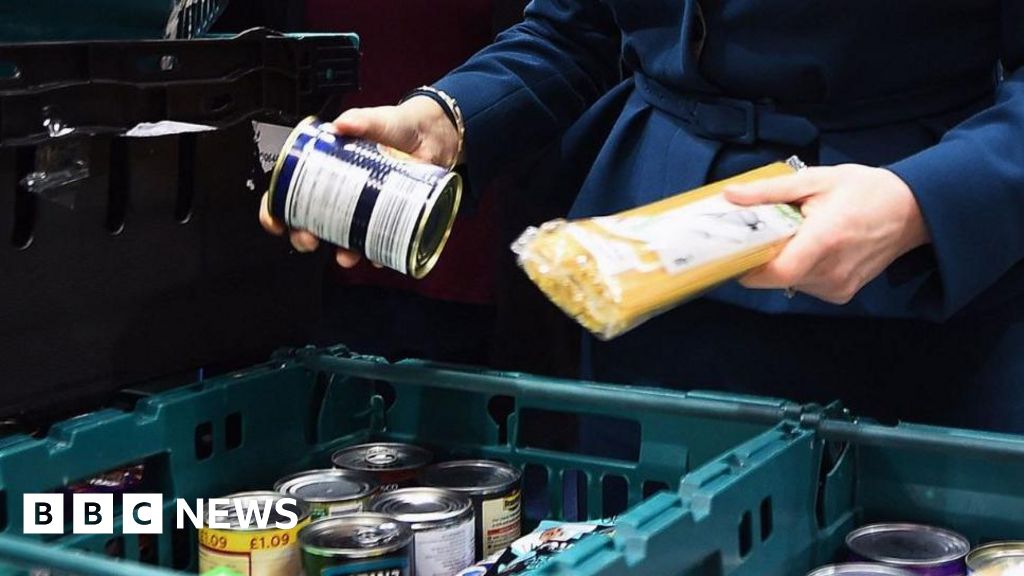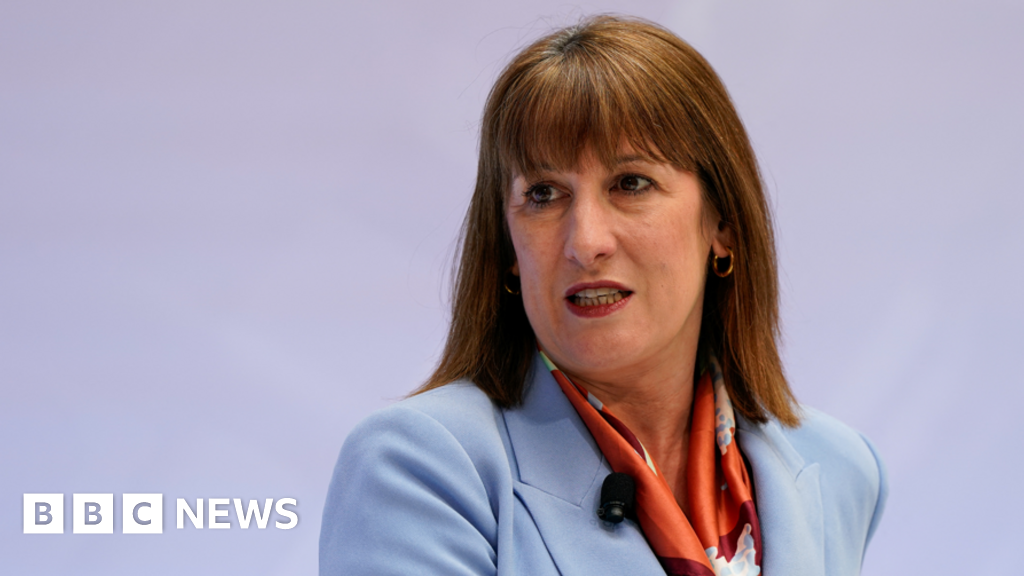ARTICLE AD BOX
By Lucy Hooker
Business reporter, BBC News
image source, Bethan Batiste
image captionBethan wants to invest her savings sustainably but she found it hard to know where to startA year ago Bethan Batiste started wondering whether she could be putting her savings to better use.
"I've always been very concerned about the climate," the 23-year-old says. "I've watched a lot of YouTubers. And I think it was one of them that made me go, yeah, I should look at my money."
Bethan works part-time in a shop in Guernsey, and doesn't manage to save a great deal, but she has £1,000 put away for a rainy day, and she would like to know it's not doing more harm than good.
"I don't want to be funding fossil fuels or big mining operations," she says.
As the urgency to act on climate change has become clearer, many people feel the same: wondering whether by moving their money they could make a difference.
image source, XR South East UK
image captionA lot of environmentalists don't want anything to do with the fossil fuel industryBut as Bethan found, investing sustainably can be daunting. Many investment and savings providers make big claims about how climate-friendly their products are, but it can be hard to work out how much genuine impact they're likely to have.
There are plenty of options, says Lisa Stanley, co-founder of the website Good with Money, which provides information to make ethical investing easier. It says it offers a jargon-free guide for first-time investors, like Bethan, and is financed through advertising and through a kitemark scheme it runs.
"Step one is to look at your bank - are you happy with its environmental record?" says Ms Stanley. "In general, I would say products at mainstream High Street banks are not going to be the greenest."
Bethan could shift her £1,000 into a savings account at an ethical bank or building society, says Ms Stanley, or she could look for a climate-friendly investment fund.
Usually these funds simply screen out specific sectors that are seen as problematic, such as big energy, tobacco and armaments.
However, some funds will take a more active approach, lobbying for more climate-friendly strategies, or investing in businesses with a positive impact on the planet.
Green investing: Where to start?
- If you are sticking with cash, consider putting your money with a bank or provider that focuses on green issues
- Take advantage of tax-free savings allowances, such as ISAs, but remember to keep a buffer - money you can access easily if you need to
- Look for a 'climate-friendly' investment fund that matches your priorities, choosing the sustainable or ethical options on online platforms
- Consider a fund that actively picks stocks that promote decarbonisation, like renewable energy, or one that works for change within polluting industries. This is known as "impact" investing
- If you want to pick your own stocks, beware of social media 'hot tips'. Sustainable stocks carry risks just like any other investment
- Check where your pension is invested
- If you have larger sums to invest, consider hiring an independent financial advisor
There's been a boom in sustainable investing in recent years, due to rising awareness of environmental issues.
And as governments have made their commitments towards tackling climate change clearer investing in the companies that are on right side of the transition, has started to make financial sense too, adds Ms Stanley.
image source, Reuters
image captionIs Tesla a green stock or not?But it isn't always obvious what should count as a green investment. For example, some funds give the electric car company Tesla a high score thanks to its products. Others put it near the bottom of the climate-friendly list, due to its dalliances with Bitcoin and the damage done by lithium mining for use in its batteries.
If Bethan chooses a fund that simply avoids investing in fossil fuel firms, she might find, with further digging, that it still invests in petrol refineries or other closely related businesses.
So, she's not sure a fund like that would go far enough. "I'd much prefer knowing the money was going for a good cause, rather than just avoiding the bad stuff," she says.
That's the approach Louis Velati has taken. At school he was involved in the Friday climate strikes. When he inherited some money, the 20-year old physics student in Manchester, decided to put his money where his mouth was, and started researching green investing.
"I'm a bit geeky and lockdown was an opportunity to deep dive into it," he says. He found websites like MoneySavingExpert that could help him get to grips with the new concepts.
He homed in on Triodos, a Netherlands-based bank with a strong focus on responsible investing, because it offered the chance to actively support climate-friendly sectors like wind power, as well as avoiding harmful ones.
"The impact investing funds were very exciting," says Louis. "I really liked how you could see where your money was going. You feel very connected to the projects your money is going towards."
Another option for Bethan could be to choose a fund that promises to positively engage with firms, instead of simply avoiding heavily-polluting sectors.
Engagement means the fund's manager will call for change and support pro-climate motions at shareholder meetings, explains Ms Stanley.
More active approaches help avoid some of the pitfalls sustainable investing can fall into. In recent years, there's been a boom in big investment funds labelled ESG - Environmental, Social, and Corporate Governance funds - reflecting a really wide range of ethical considerations, from workers' rights, to how well the firm is managed.
Huge investment flows have flooded into ESG funds, as interest has grown in responsible investing, but their climate impact is sometimes not as good as the marketing may suggest.
A report by InfluenceMap, a think tank, looked at investment funds which used pro-climate branding.
The think tank found fewer than half of the funds had overall investments that aligned with globally agreed climate change targets.
Another piece of recent research by French business school, Edhec, found "greenwashing" by funds claiming to be climate-friendly disguised the limited impact their investments were having.
image source, Wilkinson Photography
image captionLouis spent lockdown researching green investingIt said money wasn't flowing to companies that were improving their environmental record, while many that were deteriorating were still being funded.
One leading fund manager, BlackRock's chief investment officer for sustainable investing, Tariq Fancy, left his job in frustration. He has denounced ESG investing as "sustain-a-babble" arguing it does more harm than good because people think they're tackling climate change when they're not.
Ultimately, though, these problems will have to be resolved, says Ben Caldecott, the Lombard Odier associate professor of sustainable finance at the University of Oxford, because shifting financial flows is an essential part of the decarbonisation process.
"There is no solution that doesn't involve the financial sector changing rapidly. There is no transition without it," he says.
In fact, how to mobilise private finance is high on the agenda at the COP26 meeting in Glasgow, taking place in November, where world leaders will be hammering out new commitments and strategies for reducing carbon emissions.
"If we want to tackle climate change, we want fossil fuel companies to pay much higher interest rates, so it's harder for them to raise money.
"But it might also be that we want companies committed to change, to have access to cheaper capital," says Prof Caldecott.
"What we don't want, is money going to firms that promise change but don't deliver. That's the worst possible outcome."
Standardising rules and definitions and improving regulation will help make green investing more effective, he says. But that doesn't mean individuals' efforts now won't make a difference.
If you do decide to leave your bank, rather than go quietly, let them know the reason why, he suggests. It's also just as important to review your pension pot.
image source, Caroline Hopper
image captionCaroline Hopper moved her pension to greener investments four years agoThat's what Caroline Hopper did four years ago. She was shocked to find her pension was invested in tobacco and fossil fuels.
When she raised the issue with her boss, the firm hired a financial advisor to help staff pick new pension investments they were happy with.
"I said, personally, I don't want my pension in fossil fuels," she recalls. "Now it's in healthcare and tech and a bit of impact investing - clean energy companies, circular economy companies."
Since then, a campaign backed by filmmaker, Richard Curtis, has launched, calling for everyone to do the same.
Research on behalf of Make My Money Matter found redirecting your pension wealth could have 21 times the impact on your carbon emissions than going vegetarian or giving up flying, says campaign director, David Hayman.
"Your voice can have extraordinarily powerful impact," he adds. Some people move their pension wealth, he adds, but just as useful is lobbying your existing pension provider to change.
"People should see money, not as scary static investment in a Swiss bank vault, but a hidden superpower to build a better world."

 3 years ago
86
3 years ago
86








 English (US) ·
English (US) ·